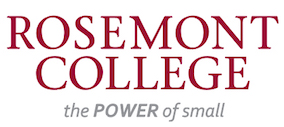Alternative Loans
Also known as private loans, alternative loands are non-federal loans offered by private lenders such as a bank or credit union. They are available for both traditional undergraduate students and adult students in accelerated bachelor's degree or graduate programs.
Alternative loans may help bridge the gap between the cost of education and the limited amount the government allows students to borrow from federal loan programs. There are no federal forms to complete. Loan limits and rates vary by lender, and students might need a credit-worthy cosigner.
EXPLORE PRIVATE LOANS
What are Alternative Loans?
Alternative education loans are available to student borrowers with credit-worthy cosigners to help bridge the gap between what their family’s financial resources will allow and the cost of higher education.
If your family requires additional financing options, there are a number of choices available. All loans are certified for the full year – both fall and spring semesters. Loans are not processed for one term only.
Disclaimer: Free or lower-cost Title IV federal, state, or institutional aid may be available in place of, or in addition to, a private education loan. To apply for Title IV federal grants, loans and work-study, please visit Steps to Apply for Aid. You are strongly encouraged to pursue the availability of free or lower-cost financial aid first.
Students have the right to apply through any lender, whether the lender is listed on the Rosemont College Financial Aid Office website or not. Because the terms and conditions of the loans depend so greatly on the credit score of the borrower and cosigner, we cannot recommend one lender over another.
As the consumer, it is important to be pro-active and explore all of the alternative loan options. In fact, many loans have different interest tiers and repayment options. It is important to determine for which tier and interest rate you qualify.
In general, interest rates are based upon a standard rate then a percentage is added. Example interest rate as of 5/31/2016: 3-mo Libor + 3.9% would be 4.59% (.69% 3-mo Libor + 3.9%).
The Fair Isaac Corporation, the creator of the FICO score, has clarified that shopping for the best priced private educational loan does not necessarily lower an individual’s credit score as long as the credit inquiries are made within a time frame of 30 days.
We recommend that you shop for the loans during a 30-day period through June and July. Once you have decided on a loan and have sent a signed Master Promissory Note (MPN) along with all required paperwork to the lender, certification information is then provided by the University. This certification process begins in mid to late July.
FAQs about Private Loans
The following are questions we suggest asking when speaking with lenders:
1. What is my interest rate?
2. How often will the interest rate change?
3. Are there any fees with this loan? If so, what are they?
4. When do I begin repayment of principal?
5. When do I begin repayment of interest?
6. If I submit a payment late, can the lender raise my interest rate?
What is the processing time of an alternative loan from the time you apply to the
time funds might be made available?
Changes to Alternative Loan Regulations
Alternative Loan Borrowers: The Federal Truth-In-Lending Act has changed the regulations
necessary for borrowers to receive private educational loans.
The Federal Truth-In-Lending Act has changed the regulations necessary for borrowers to receive private educational
loans.
Specific adjustments include providing three detailed disclosures to the borrower throughout the loan application and approval process, obtaining a borrower self-certification form and providing a three-day “right of rescission” period in which the student may cancel the loan.
Borrower Self-Certification
The borrower must submit a signed self-certification form to the lender. This form, which is completed and signed by the student, must show the student’s cost of attendance, expected family contribution, estimated financial assistance, total aid and the maximum private loan amount allowed. The self-certification form is available here. For assistance completing the self-certification, feel free to contact the Financial Aid Office.
